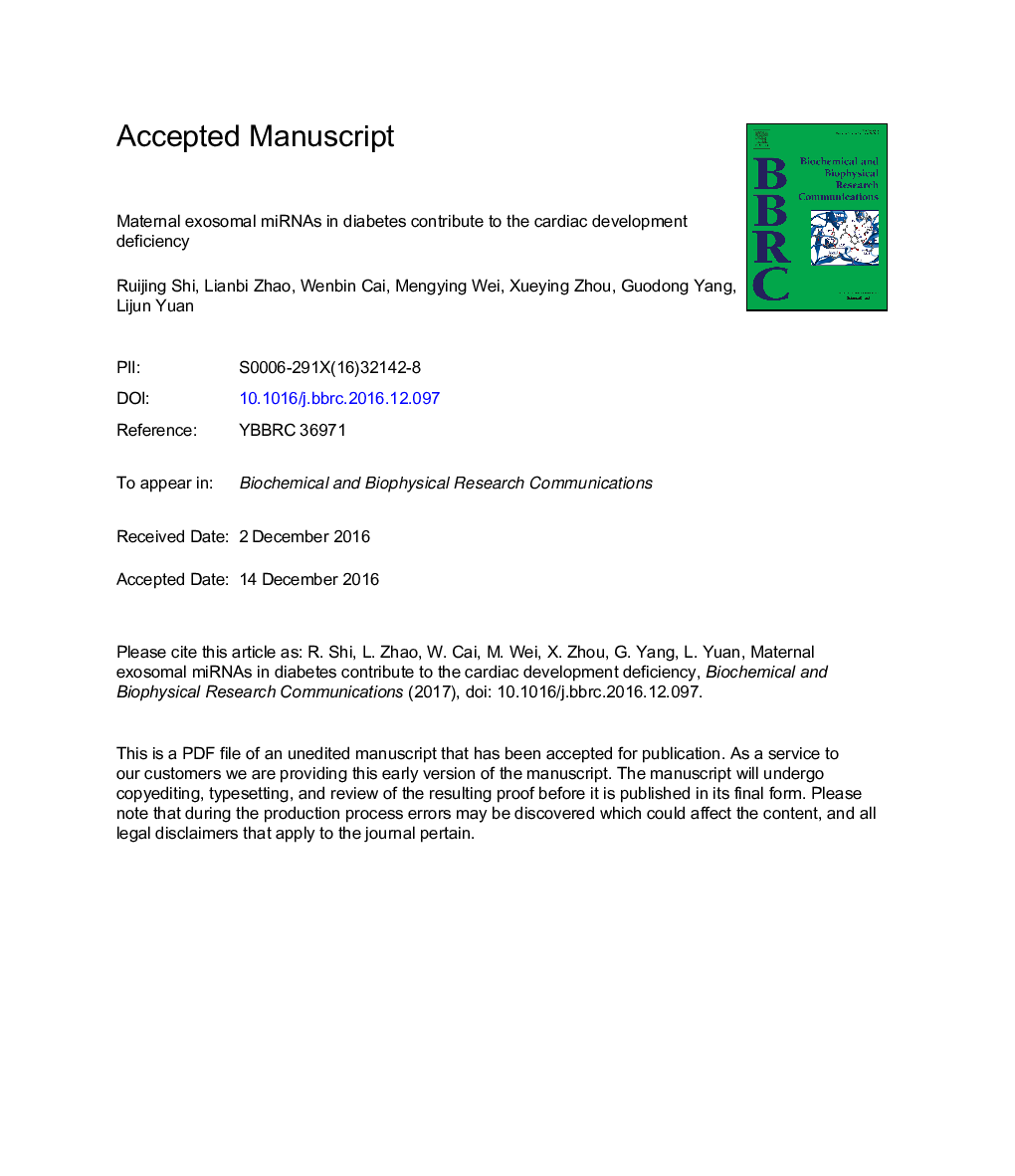| Article ID | Journal | Published Year | Pages | File Type |
|---|---|---|---|---|
| 5505640 | Biochemical and Biophysical Research Communications | 2017 | 28 Pages |
Abstract
Maternal diabetes mellitus induces an increased risk of congenital heart defects (CHD), however, the exact mechanisms are still not fully illustrated. In this study, diabetic pregnant C57BL/6 mice were induced by injection of streptozotocin before mating. Compared with the control normal mice, diabetic pregnant mice displayed significant changes of the exosomal miRNA contents in the blood, as revealed by RNA-seq analysis. Multiple of these miRNAs were found involved in cardiac development regulation. Moreover, fluorescence labeled exosomes and gold nanoparticles could cross the placenta barrier and infiltrated into the embryonic organs/tissues, including the heart, during embryonic development. Injection of diabetic maternal exosomes strikingly increased the risk of CHD in the normal recipient pregnant mice. Taken together, we could draw the conclusion that maternal exosomes in diabetes could cross the maternal-fetal barrier and contribute to the cardiac development deficiency possibly via miRNAs, providing new insights in CHD prevention and treatment.
Related Topics
Life Sciences
Biochemistry, Genetics and Molecular Biology
Biochemistry
Authors
Ruijing Shi, Lianbi Zhao, Wenbin Cai, Mengying Wei, Xueying Zhou, Guodong Yang, Lijun Yuan,
